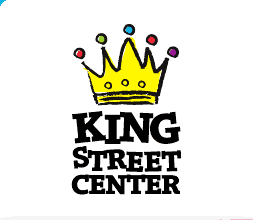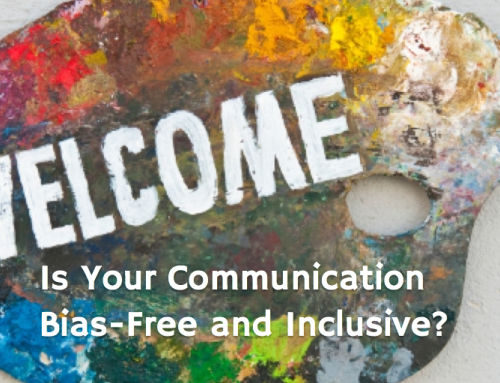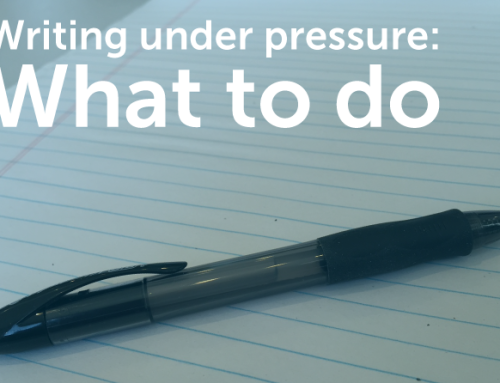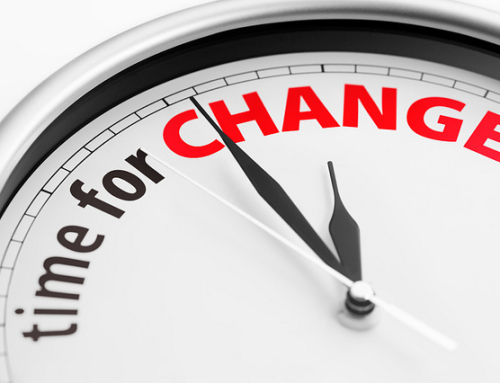Since there’s not a single lawyer on our team here, it’s easy to be surprised by the volume of questions we field about copyright law, Creative Commons, words and photos. Perhaps it’s the increase in the number of people capable of manipulating text, images or video they find online, or maybe it’s the rise in the culture of blogging and other forms of sharing in social media, but whatever the cause, there seems to be significant confusion about the when, how and under what circumstances it’s OK to use materials you or your employees did not create. Let’s look at a few common situations to illustrate the issues, and then we can turn to several of the excellent resources available online. (Please note that our suggestions are based on our experience and are not a substitute for legal advice from a licensed legal professional.)
Your Organization is Featured on the Local TV News
You’re understandably thrilled when the film camera crew arrives to feature your company on the local TV news affiliate. But resist the temptation to take your homemade DVR recording and post it on YouTube or your website, because the broadcast is covered by copyright. Most news websites offer an option to “share” or embed the video link on your site, which brings the viewer back to the original source. But it never hurts to ask permission if they don’t, and we find that permission is routinely granted for nonprofit organizations. If yours is a for-profit company, there may be a nominal fee with the cost rising based on the size of the TV channel or the traffic on your website. Here’s an example of a WCAX (CBS affiliate) news story worth asking permission to reuse. It’s about a wonderful Lemonade Stand program at one of our favorite local nonprofits, King Street Center.
WCAX.COM Local Vermont News, Weather and Sports-
You Find the Perfect Picture on the Internet
We’ve written in earlier posts about copyright and the risks of grabbing images off the Internet. In general, if you or your employees did not take the photo or draw the illustration yourselves, then there’s need to look carefully at the copyright terms. A small fee to a stock photography house may cover the royalty fee due to the creator. Or perhaps, if you’re lucky, the photographer made the image available under a Creative Commons license for share and share alike. (Simply put, that means you may use it as long as whatever you are creating is available for others to use in the same way.) Or maybe the image is available for “attribution only,” meaning you must simply credit the photographer. If you are a for-profit company wanting to use the image for commercial purposes, do be careful to check that use is not commercially restricted.
 Meadow flowers at dawn © Copyright Jonathan Billinger and licensed for reuse under this Creative Commons Licence.
Meadow flowers at dawn © Copyright Jonathan Billinger and licensed for reuse under this Creative Commons Licence.You Find the Perfect Picture of Your Product in Use – Taken by A Customer
This is a wonderful opportunity and a minefield at the same time. You need to begin by asking the customer for permission to use the image, and if your customer is a small business or individual, you may also need to ask who the photographer was. Many small firms and nonprofits do not realize that photographers and graphic designers retain copyright unless other arrangements are specifically negotiated. For example, if you schedule a photoshoot for a print catalog with a distribution list of 585,000, you do not have the right to publish these images on the Internet without purchasing the rights to do so from the photographer.
You Want to Include an Article to Make Your Point
If someone else wrote it, the copyright rules are the same for words as they are for images. Quoting a few words from the article may be considered “fair use,” but using entire sections of an article clearly is not. Again, if the author is a small business or an individual, you can always ask for permission to use a specific article or whitepaper. If you want to offer that paper on your website, however, copyright fees are due. For many publishers, you’ll find a quick visit to the Copyright Clearance Center will enable you to determine the appropriate copyright fee to pay for use in print, or for click rights online.
The Short Story
In this age of sharing and linking, it’s easy to overlook seemingly old fashioned issues like copyright. The same technology that makes it easy to copy and reuse photos or words makes it easy for creators to track down copyright violations. This is a subject I’m sure we’ll return to again, so subscribe now so you don’t miss future posts. Meanwhile, if you like that image or story, be sure to seek permission for use, or pony up the copyright fee.
Resources: U.S. Copyright Office Creative Commons Copyright Clearance Center







